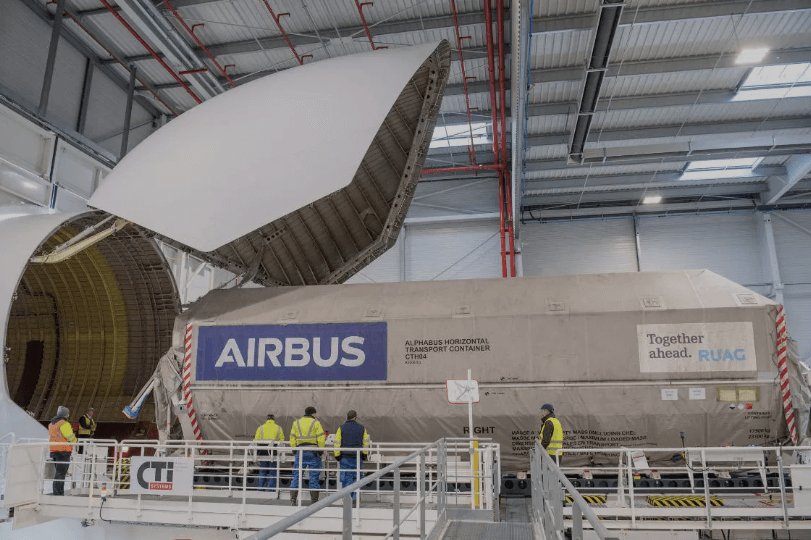TAMPA, Fla. — Inmarsat’s latest geostationary telecoms satellite has arrived at its Florida launch site after a three-day journey from Airbus’ testing facilities in France.
An Airbus Beluga plane carrying the 5,500-kilogram Inmarsat-6 F2 (I-6 F2) satellite landed at the Kennedy Space Center on Jan. 27, Airbus Space Systems spokesperson Jeremy Close said, following refueling stops in Canada and Virginia.
It is the second time a Beluga has flown a large satellite across the Atlantic to Florida since Airbus announced its outsized freight transportation service early last year.
Companies typically use Ukrainian Antonov aircraft to ship large spacecraft overseas — or boats that take weeks longer; however, these planes have been in short supply since Russia invaded Ukraine.
Airbus last used Beluga to ship the Hotbird 13F satellite it built for Eutelsat from France to Florida in October, marking the plane’s first trip to the U.S. since delivering a module for the International Space Station in 2009.
SpaceX is slated to launch I-6 F2 on a Falcon 9 in the middle of February toward an orbital slot covering the Americas.
The satellite is identical to the Airbus-built Inmarsat-6 F1 (I-6 F2) that Japan’s Mitsubishi Heavy Industries launched in late 2021 toward a geostationary orbit above the Indian Ocean.
Both satellites have a hybrid L- and Ka-band payload for providing mobile connectivity services to maritime, aviation, and government customers.
I-6 F1 used its onboard electric propulsion to climb to a geostationary testing location in summer 2022, Airbus said in a Jan. 30 news release, and is slated to enter service early this year.
It will also take time for I-6 F2 to reach its orbital slot post-launch and complete tests before entering service, which Airbus expects to occur in early 2024.

